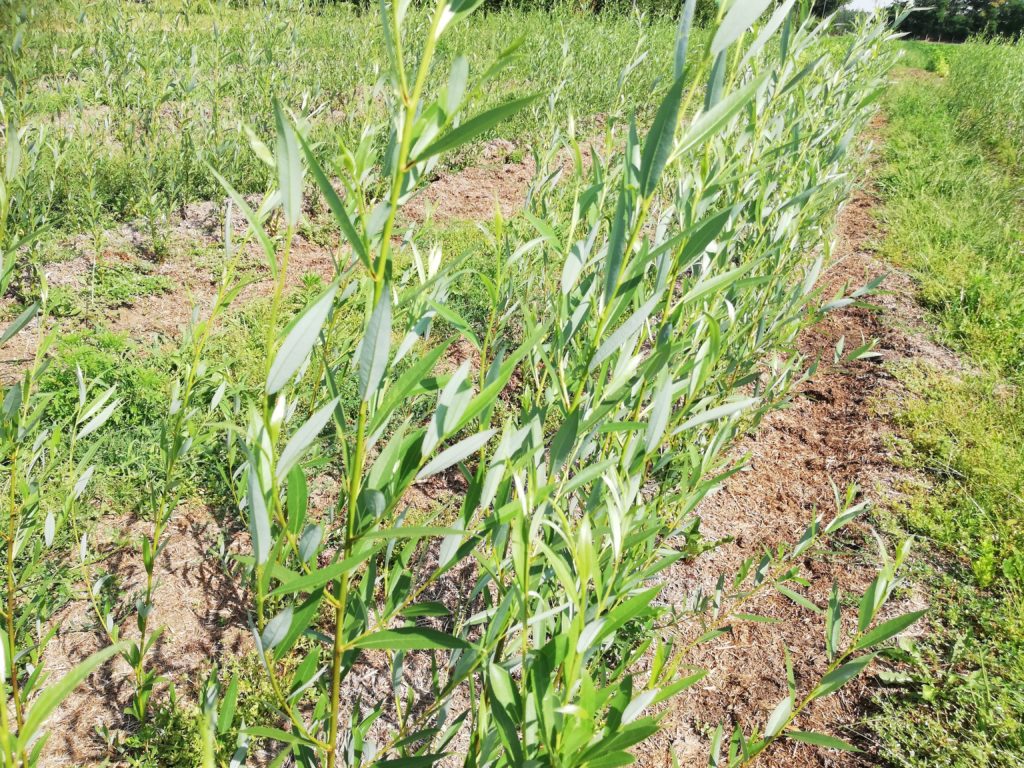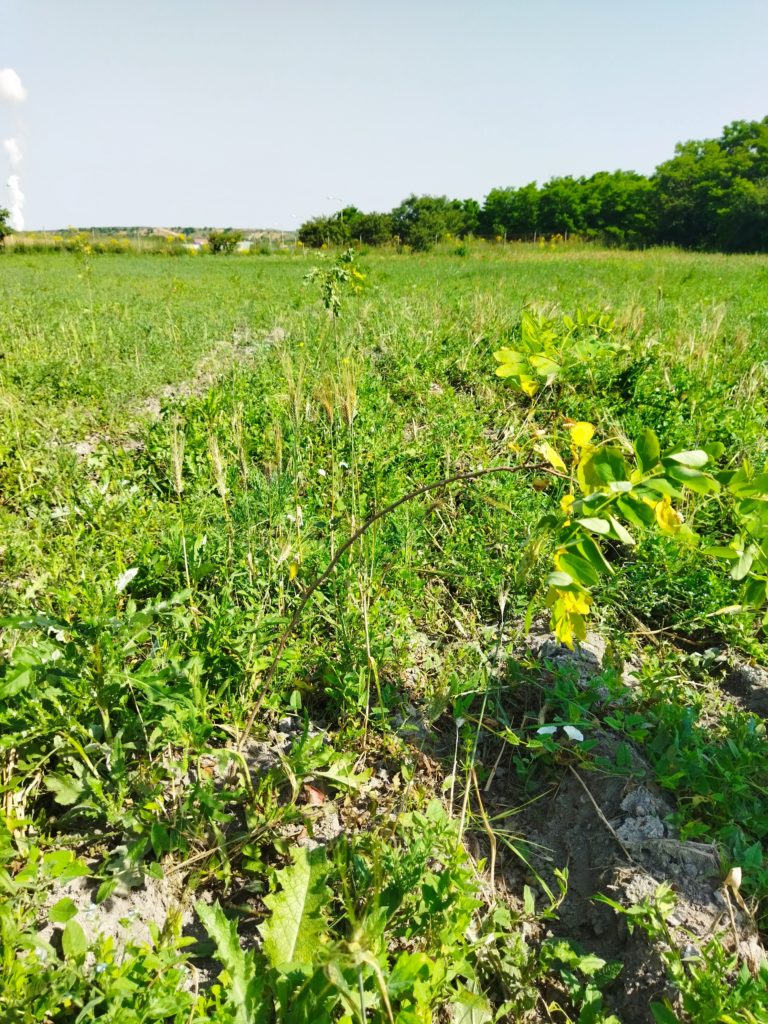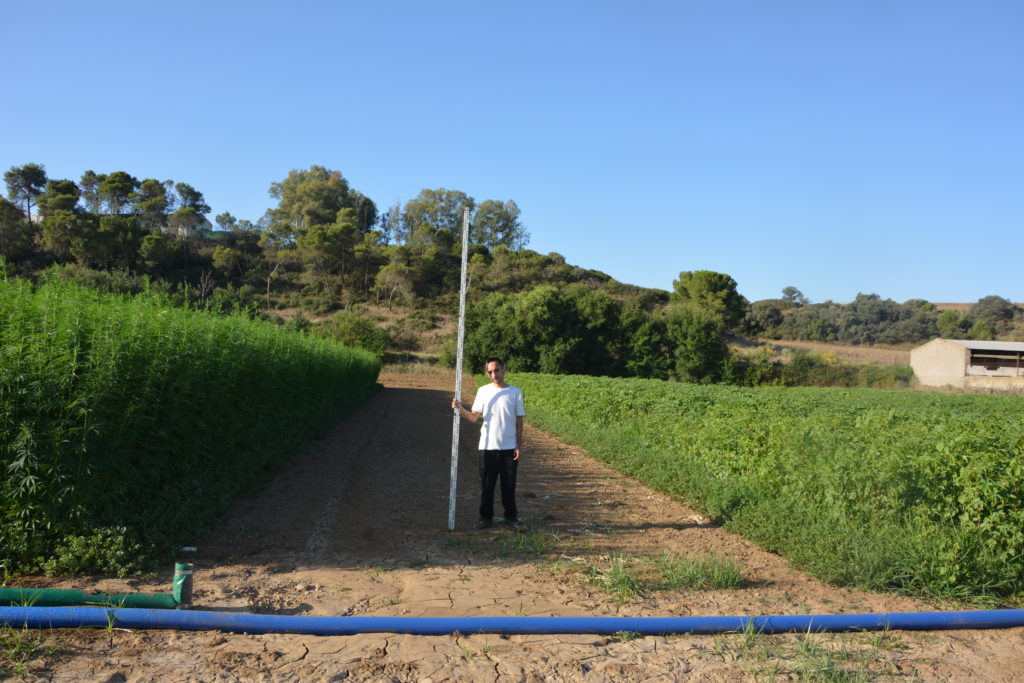MarginUp! Use Cases Progress Towards Plantation and Harvesting
MarginUp! use cases have been working hard over the last few months to commence the cultivation of bio-based industrial feedstocks on marginal lands. The wide range of lands, climate conditions and natural raw materials involved in each site makes each use case unique and determines the actions taken, but all of them are progressing successfully.
For the smooth and continuous monitoring of the progress of each use case, there is a shared farming calendar where partners fill in each task they carry out in detail, e.g., date, duration, person in charge, description, photos, and status. The use-cases hold bi-monthly meetings to share face-to-face all the updates regarding their progress, as well as problems that may arise.
Southern Great Plain, Hungary
In the Hungarian use case, they are introducing innovative crop cultivation on semi-desert soils for the cascade biomass use of biorefined spent mushroom substrate. By summer 2023, partners planted both Sida hermaprodita and energy willow (variety Naperti), and they are also considering planting a major plot of Sorghum sudanese in the surrounding part of the experimental site for desertic soil conditions.
They have also put in place a complex meteorological observation unit to provide data for this use case and they conducted a site visit in Bugac to learn how to use cover crops on sandy soils.


Brandenburg, Germany
The focus of the German use case is to rewet peat lands to retain carbon in the soil and explore industrial uses for the biomass. The designated area for this use case activities development measures 30 km by 20 km, and the landscape consists of flat grasslands with peat soils, characterized by ditches and tree rows.
A new land system has been proposed, involving the elevation of the water level and the cultivation of reed or sedges, known as paludiculture. The harvest time is expected after the summer.
Western Macedonia Region, Greece
Between April and June 2023, The Cluster of Bioeconomy and Environment of Western Macedonia (Clhttps://clube.gr/en/uBE) and DIADYMA carried out several important actions for this use case, that works with severely degraded land in an abandoned former lignite mine near the town of Kozani. Firstly, DIADYMA ploughed the field and then they collected samples of various points of the field and sent them to an external laboratory and to the University of Thessaly for the examination of radioactive elements. Finally, CluBE and DIADYMA proceeded with the planting of 1500 black locust trees (Robinia pseudoacacia L.) in the field of study.


Extremadura, Spain
Partners in the Spanish use case have initiated the plantation of industrial crops, in the low-productivity land of Finca La Orden-Valdesequera, near the city of Coria. Though they cultivate corn and tomato annually, the area has poor soil quality and risks desertification and abandonment.
The introduction of hemp and kenaf in rotation with corn will improve land use efficiency. Both hemp and kenaf have been already planted, kenaf was harvested at the end of July and hemp will be harvested in September. The crop will be harvested again in 2024, with a rotation during the period 2024-2026. Furthermore, partners already got some biomass samples, and they have been working on maps of soils and habitats, as well as implementation guidelines for biodiversity impacts.


Västerbotten and Norrbotten county, Sweden
The Swedish use case partners have allocated a plot of 10 hectares for spring turnip rape cultivation in this region. Cordelia is the specific turnip rape variety employed, with an average yield of 1500-2000 kg/ha. Turnip rape is a resilient crop that can thrive in colder climates and can withstand pest and disease pressures while promoting biodiversity. Side streams such as protein-rich cake can serve as animal fodder, replacing the reliance on soy.
Argentina
In Argentina, marginal lands are under pressure due to the expansion of agricultural frontiers and livestock production. Hence, this use case is more focused on economic and sustainable alternatives to maintain the conditions of these marginal lands. They have an experimental field with many activities, where they produce honey and mushrooms, so they will work closely with the Spanish and Hungarian use cases.
The Salado River Basin in the Pampas (9M ha), the selected region to test MarginUp!, is the major area devoted to beef cattle production in Argentina, and soils are in saline-alkaline lowlands. They are poorly drained, they present high levels of exchangeable sodium and alternate cycles of drought and flooding. The proposed approach involves cultivating the legume plant Lotus tenuis or narrowleaf trefoil due to its high tolerance to salinity and ability to grow on degraded land.

South Africa
Partners from Stellenbosch University have published a research article called “Rethinking the role of value-added industries for invasive trees in South Africa” in the International Forestry Review. It explains why invasive alien trees are a threat to sustainable development in South Africa due to their rapid propagation and negative impacts on water availability, fire risks, land productivity, and biodiversity conservation; and how the problem remains despite plans to restore land. The paper discusses how value-added industries can contribute to its resolution by providing value to the biomass and supporting upscaled control efforts with private investments.
Furthermore, the paper was presented in the Garden Route Environmental Forum and the National Symposium on Biological Invasions in South Africa in June and July 2023.

